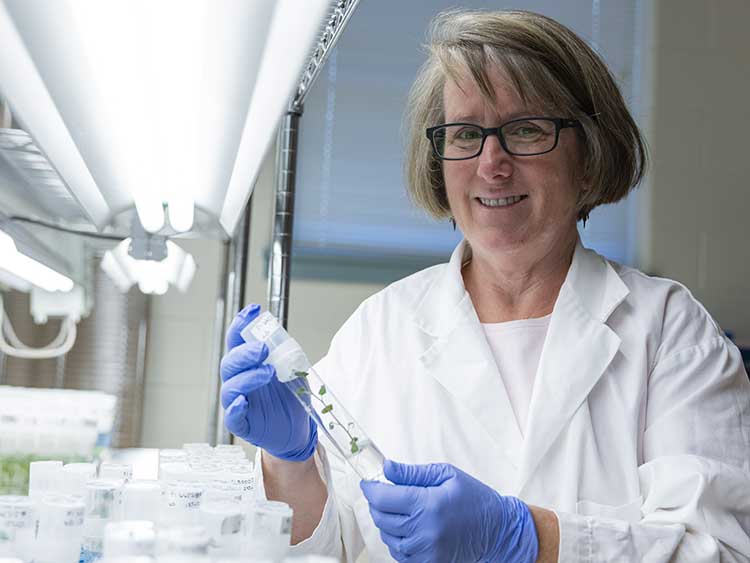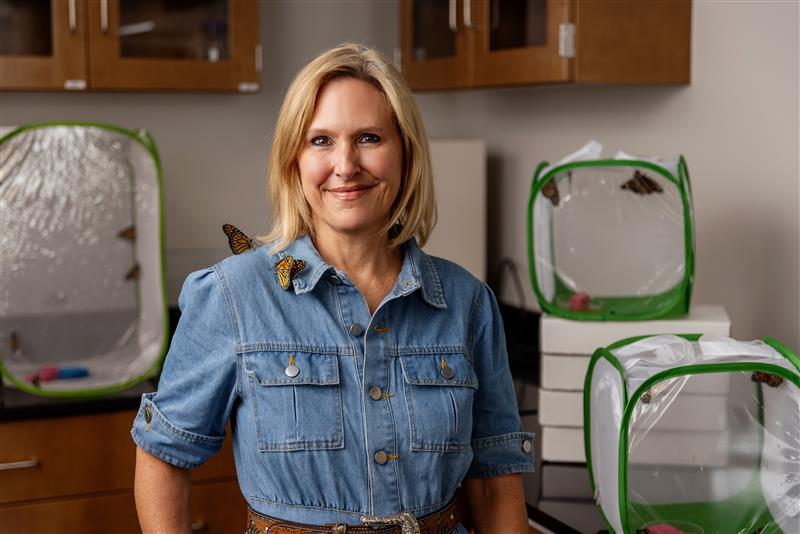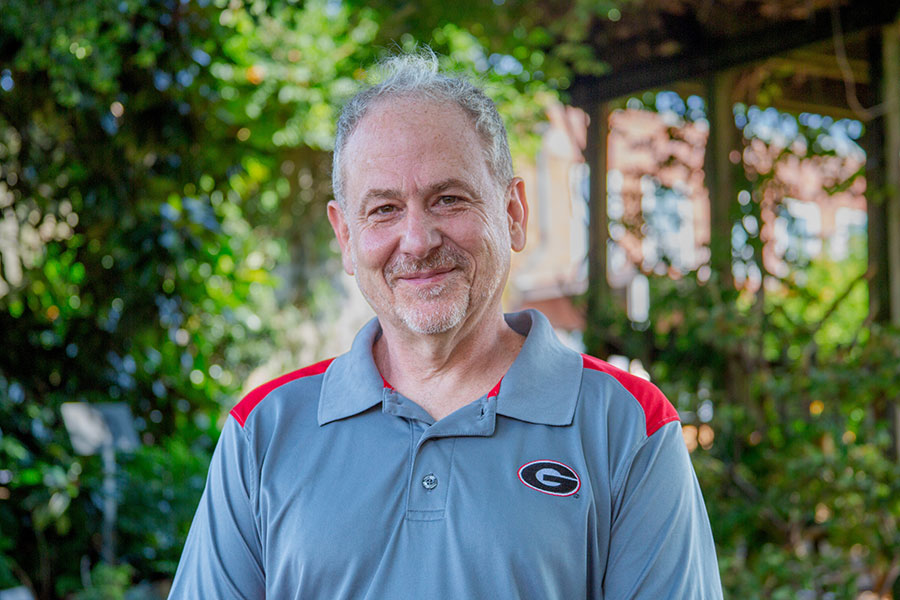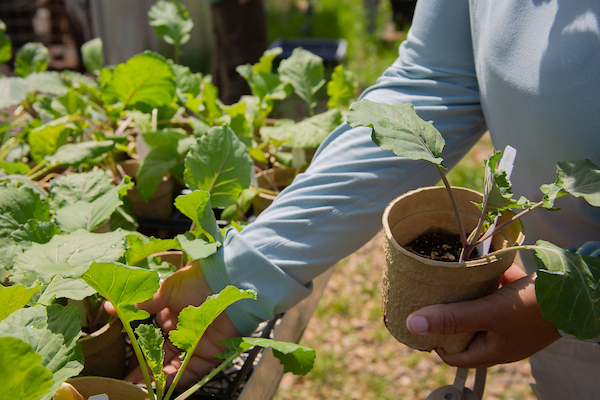
University of Georgia plant genomics expert Robin Buell is part of an international team seeking to mine an untapped genetic resource for wheat improvement by sequencing the genomes of ancient varieties representing the worldwide diversity of bread wheat.
The two-year project— called the Wheat Diversity Project — is funded by the U.S. National Science Foundation (NSF) and will bring Buell, who is the GRA Eminent Scholar Chair in Crop Genomics at CAES, together with researchers from the International Wheat Genome Sequencing Consortium (IWGSC) and collaborators in France. The team will sequence 12 landrace genomes and update the IWGSC Chinese Spring reference sequence (IWGSC CS RefSeq), which is the primary genome reference for bread wheat research.
Landrace varieties and genome sequencing
Landraces are wheat varieties adapted to local environmental conditions and management practices. They were traditionally farmed across Northern Africa, Europe and Asia for thousands of years until their replacement by modern cultivars with higher yields and farming qualities. This resulted in a substantial reduction of genetic diversity in cultivated wheat.
Landraces are reservoirs of key agronomic and adaptive traits for crop improvement. They are genetically diverse and contain genes associated with disease resistance, grain-traits, nitrogen-use efficiency, and tolerance to environmental stresses such as drought, heat and salt, as well as genes coding for proteins involved in flour quality and dietary sensitivity. Wheat – one of the most cultivated and consumed crops worldwide – is a key food security crop, providing about 20% of dietary calories and proteins for humans worldwide.
“Development of the initial IWGSC CS RefSeq in 2018 served as a springboard for genetics, evolution, breeding and biotechnology advancements in wheat,” said Kellye Eversole, IWGSC executive director and lead principal investigator (PI) on the diversity project. “Updating this resource and providing new landrace genomes will enable further advancements in wheat research and breeding.”
Joshua Stein, IWGSC Diversity Project manager and co-PI on the project, said “the genome sequencing of 12 strategically selected landraces, along with the updated IWGSC CS RefSeq, will provide a crucial step forward in world-wide efforts to improve wheat by identifying the genomic diversity that underlies adaptive traits. This will allow for the development of hardier and improved wheat varieties to meet future demands of climate change, population growth and sustainability of natural resources.”
The genome sequences will be generated by applying recent advances in long-read sequencing, optical maps and chromosome conformation capture sequencing. All genomes will be annotated using established pipelines and accession-derived transcriptome data to inform gene models across the panel.
Existing annotations in the IWGSC CS RefSeq, including thousands of community-contributed and manually curated gene models, will be preserved in the new RefSeq version.
Advancing future food production
To make these resources immediately applicable to advance wheat breeding, project co-PI Robin Buell of the UGA College of Agricultural and Environmental Sciences will develop a practical haplotype graph (PHG) — a powerful tool that can be used for both genomics and breeding research to accelerate future innovations. The graph will be publicly available and accessible to the entire wheat community via the IWGSC Data Repository at INRAE-URGI and via the U.S. Department of Agriculture data repository GrainGenes.
Additionally, the Wheat Diversity Project team will conduct education and outreach activities in the U.S. to raise public scientific literacy by engaging in urban afterschool STEM programs, training educators, and providing paid summer internships for talented minority students to gain training in laboratory and bioinformatics skills in plant sciences.
The NSF grant will support sequencing of the updated IWGSC CS RefSeq and eight landraces, the PHG development, and the outreach and education segment of the project. Collaborators from INRAE and the University of Paris-Saclay in France will provide the project seeds, sequence four landraces, annotate all genomes and add the data to the INRAE-URGI data repository, with funding from the European Research Council (project 3Dwheat #101044399) and INRAE Plant Biology and Breeding department.
Officially called “TRTech-PGR: Unlocking bread wheat genome diversity: Foundational genome sequences and resources to advance breeding and biotechnological improvement of a global food security crop,” the NSF-funded project will launch in January 2024 and continue through December 2025.
The IWGSC, a nonprofit organization with 3,450 members in 76 countries, is an international, collaborative consortium, established in 2005 by a group of wheat growers, plant scientists, and public and private breeders. The goal of the IWGSC is to make a high-quality genome sequence of bread wheat publicly available to lay a foundation for basic research that will enable breeders to develop improved varieties.






